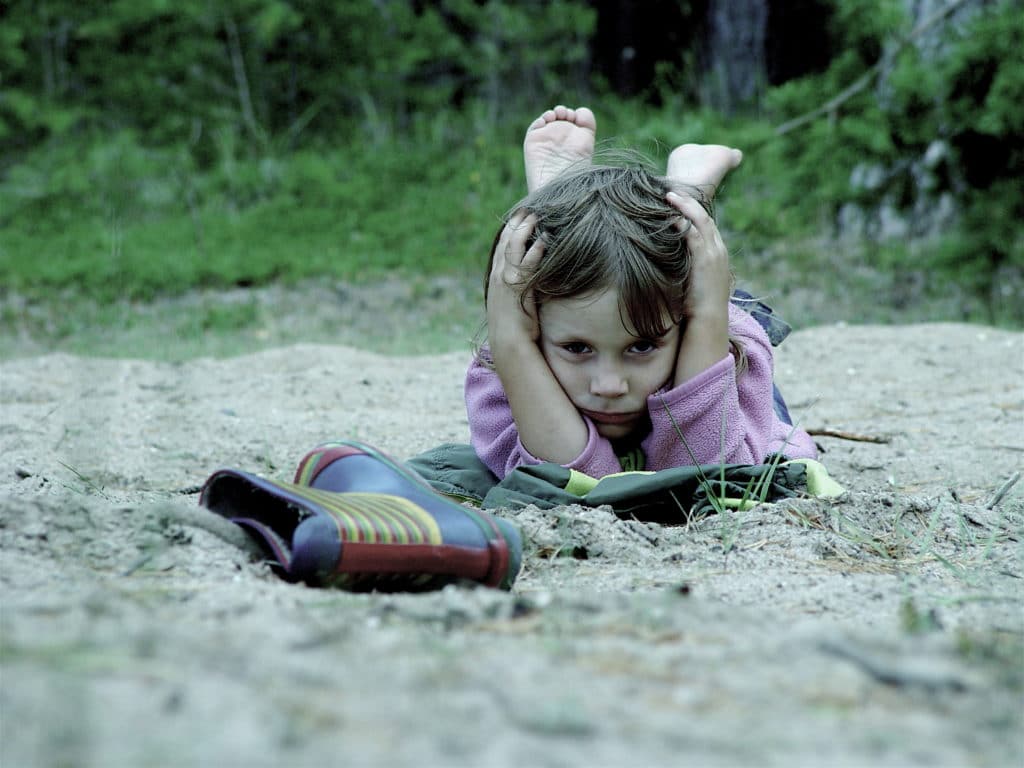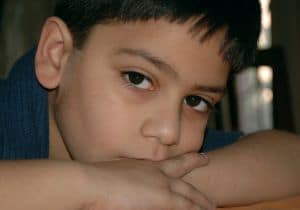Parenting a Child With Depression
 Is my child depressed? There is probably some amount of depression if a parent even asks this question.
Is my child depressed? There is probably some amount of depression if a parent even asks this question.
The next question is how to determine the best way to get some relief for your child. This does not necessarily mean antidepressants. It could be changing school environment, a different style of parental support, exercise, certain foods or other family issues that might be affecting your child.
Child depression will always include the parents, even if symptoms are biologically based, because the parents will have to change their attitudes and behaviors to support their child in some way. That is why parents need just as much support and guidance as the child with depression. Yes, parents do need to put on their oxygen mask first before helping their child get their oxygen mask on. And then the parents need to do their best to keep the oxygen masks on the whole family.
For example, most of the time parents bring their child in with depression symptoms and I will see the child, the parents, and even the whole family together. Sometimes a slight adjustment in parenting can solve the whole problem.
When I first started as a therapist, I saw a lot of children and their families through the school system which only allowed a few sessions, so I couldn’t really do much therapy. Therefore, I would just have the parents play with the children 15 minutes a day and do whatever the child wanted. Most of the time that would either fix the problem or it did not get worse until further therapy could be brought in.
Parents dealing with depressed children can sense that it is more complicated than, “just snap out of it kid, life’s tough”. This doesn’t help in the long run and can make the depression worse because the kids are already stuck. They need patience and stability from the parents.
For example, if you can see that the depression with your child is based on a recent divorce, then you can apply patience for the child to feel their own anger, sadness, loss and even their happiness that they do not have to listen to their parents argue any more.
If the parents are always telling them how they “should” feel, it takes longer for them to work through the actual feelings that are a natural depression, given the loss or change in the family. If allowed to feel and express their individual experience, they can get to the other side of depression faster. Yes, you still try to have them stay focused on school, jobs around the house, their friends and so forth, but that also needs patience because one of the main diagnostic symptoms for depression is; not doing what you use to do for fun.
This example is very specific. It can be more complex if there are complicated issues involved; such as, a death in the family, alcoholism, addictions, parental tension for a long period of time, abuse and so forth. That is why it is important to get a little help. The process may take more expertise and time.
The following list will give some of the characteristics of a clinical depression. However, child depression symptoms are a little different in that children may appear irritable.
Signs that my child might be depressed
The following is a partial list used by psychotherapists to determine a diagnosis of depression. For a more complete description see DSM-V, page 160-161. This is the manual used by clinicians to determine a diagnosis.
1. Depressed mood most of the day, nearly every day, as indicated by either subjective
report (e.g., feels sad, empty, hopeless) or observation made by others (e.g.,
appears tearful). (Note: In children and adolescents, can be irritable mood.)
2. Markedly diminished interest or pleasure in all, or almost all, activities most of the
day, nearly every day (as indicated by either subjective account or observation).
3. Significant weight loss when not dieting or weight gain (e.g., a change of more than
5% of body weight in a month), or decrease or increase in appetite nearly every day.
(Note: In children, consider failure to make expected weight gain.)
4. Insomnia or hypersomnia nearly every day.
5. Psychomotor agitation or retardation nearly every day (observable by others, not
merely subjective feelings of restlessness or being slowed down).
6. Fatigue or loss of energy nearly every day.
7. Feelings of worthlessness or excessive or inappropriate guilt (which may be delusional)
nearly every day (not merely self-reproach or guilt about being sick).
8. Diminished ability to think or concentrate, or indecisiveness, nearly every day (either
by subjective account or as observed by others).
9. Recurrent thoughts of death (not just fear of dying), recurrent suicidal ideation without
a specific plan, or a suicide attempt or a specific plan for committing suicide.
Child depression symptoms need to be addressed as soon as possible so they do not become a way of life for the child or for the family. To have a depressed child is sad for everyone in the family and very frustrating. Even just a few sessions with a therapist can give you a direction of where your child and family need to focus attention. 
Just to know what you can change and what you cannot change with your child and your family gives the opportunity for acceptance of life and it’s limitations that are beyond our personal control. It is true, freedom is in accepting limitations.

